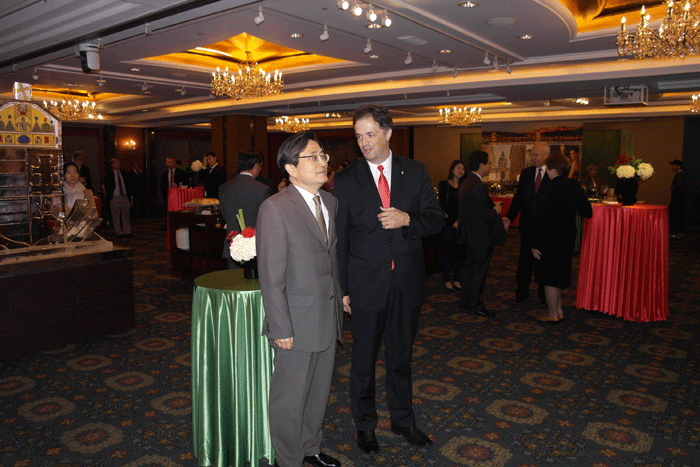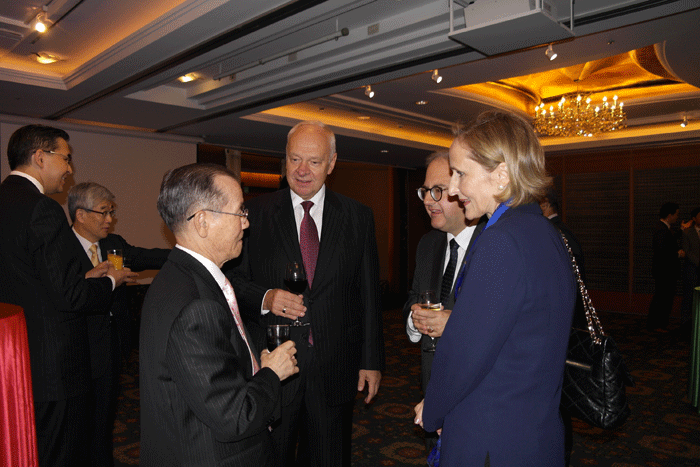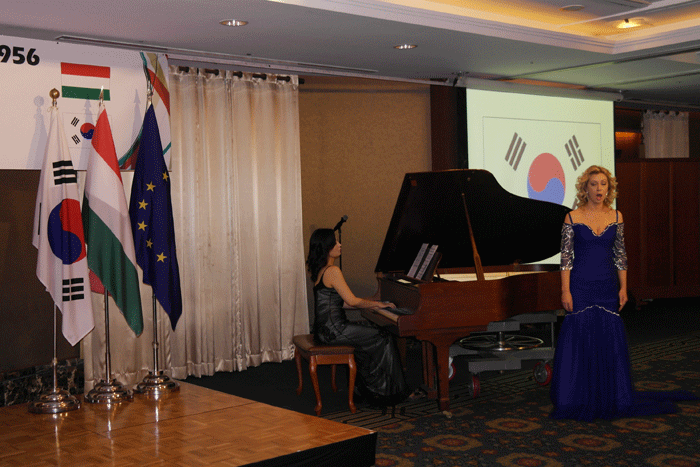In the bleak days of the frigid Cold War Era in the 1950s, Hungary was the first ray of the dawn of democracy in East Europe and a source of boundless hopes in the Republic of Korea for North Korea’s abandonment of dictatorship and joining the international community as a good member. The East Europe did, but North Korea adamantly resisted the world trend and, even today, continues to stay isolated from the world community to the chagrin of the people in the Republic of Korea and the rest of the world.

At this juncture, the 58th anniversary of the Hungarian Revolution celebrated at a reception hosted by Ambassador and Mrs. Edit Csaba of Hungary in Seoul the Lotte Hotel in Seoul on Oct. 20, 2014, bore a special meaning to the Korean people as well as to the international community. Still another cause of special celebration was that it marked the 25th anniversary of diplomatic relations between Korea and Hungary who was the first country in East Europe to bravely establish diplomatic relations with Korea.
Befitting the occasion, Ambassador Csaba said in his speech, “Fifty-eight years ago, a few hundred students went to the streets in Budapest on the 23rd of October and started a fight for their freedom first against an oppressive regime, then against the foreign occupation of Hungary. Many Koreans sympathized with them and their cause.”

The reception was attended by many Korean and international guests, including a many mission chiefs.
Among the Korean guests were Deputy Minister Shin Dong-ik and prominent figures from all walks of life such as business and cultural circles and media representatives, including Publisher-Chairman Lee Kyung-sik of The Korea Post.
From the international community came many distinguished guests such as the mission chiefs of the Diplomatic Corps, who included Ambassadors Albino Malungo of Angola, Jorge Roballo of Argentina, Elisabeth Bertagnoli of Austria, Ramzi Teymurov of Azerbaijan, Natallia Jhylevich of Belarus, Guadalupe Palomeque de Taboada of Bolivia, Petar Andonov of Bulgaria, Grecia Fiodalicia Pichardo of Dominican Republic, Hany Moawad Selim Labib of Egypt, Tomasz Kozlowski of the EU, Matti Heimonen of Finland, Rolf Mafael of Germany, Archbishop Osvaldo Padilla of Holy See, Youssef Raggi of Lebanon (CDA), Paul Menkveld of the Netherlands, Konstantin V. Vnukov of Russia, Mamadou Ndiaye of Senegal and Bakhtier N. Ibragimov of Uzbekistan (CDA).

Another distinction of the Hungarian National Day party was the presentation of the National Anthems of Korea and Hungary by a beautiful Hungarian lady vocalist accompanied by a Korean pianist. They posed a great distinction from the mechanical musical presentations.
이경식 기자
edt@koreapost.com

